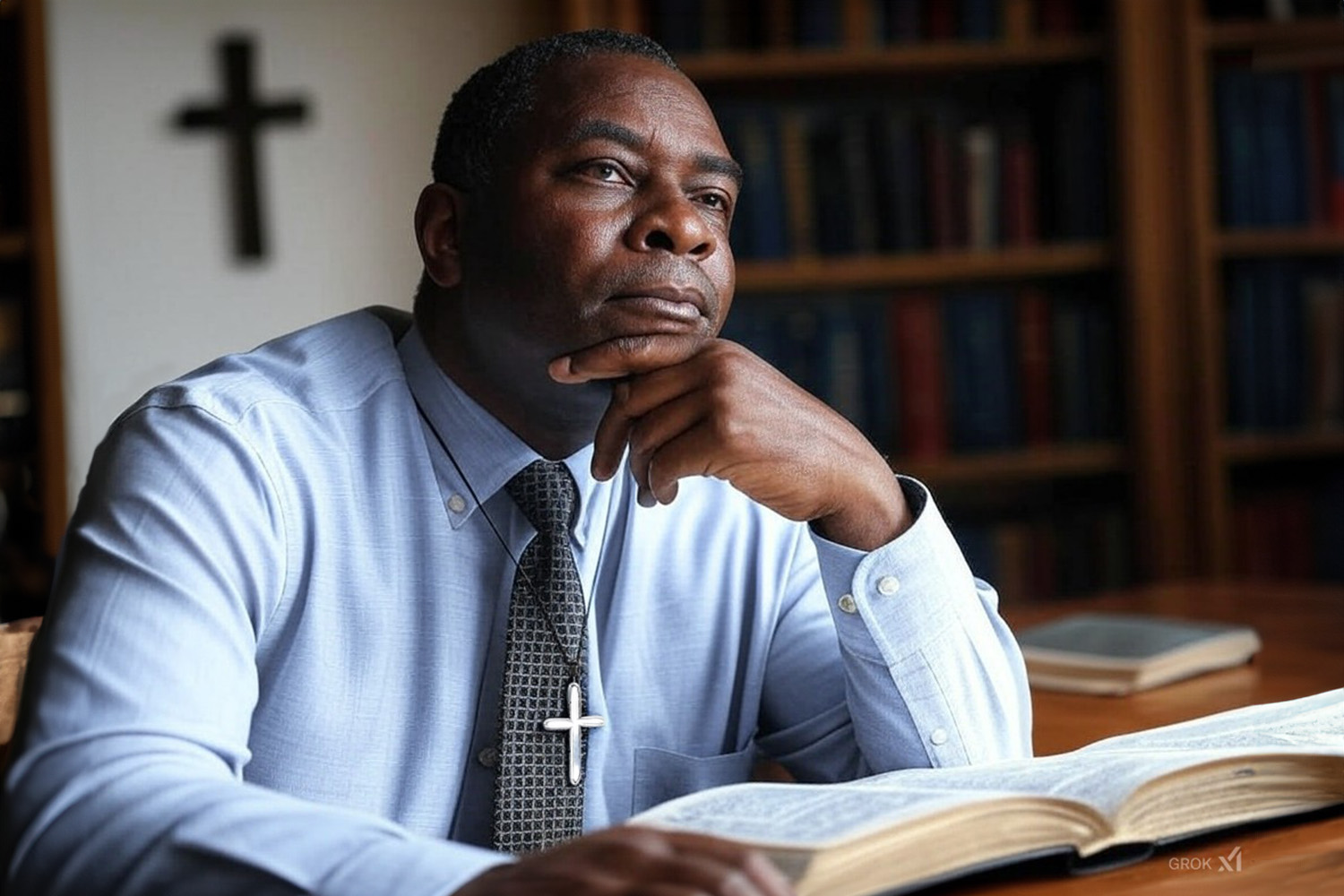Over the years, I have had many conversations with pastors from a wide range of denominational backgrounds, and I have discovered that they, just like everyone else, fall into two general camps: those faithful to Jesus and those faithful to something else.
While pastors are human and, thus, are subject to the exact same temptations, struggles, and conflicts that every other person experiences, I am focusing on them in this blog because they are in a place of religious leadership, a place where they are sub-shepherds to the Great Shepherd and take on the responsibility of leading flocks of Christians, and because many people look to their pastors for answers and examples on what to do and how to live. Thus, if a pastor is incorrect or practicing wrong principles, their influence will cascade down and lead many others astray.
In Scripture, we see this happening with the religious leaders of Israel in Christ’s day as they influenced the people to doubt and distrust Jesus (John 7:13, 45–49; 9:22).
What could a pastor be faithful to other than Jesus? To doctrines, creeds, traditions, organizations, denominations, or church authorities. We see this in the history of Christianity when various priests and church leaders promoted loyalty to their organizations rather than to following the truth as God had revealed it.
God forewarned anyone who takes on the role of speaking for Him, the role of teaching people about Him, of leading the flock for Him, that they must remain loyal to Him over their seniors or leaders in the work. We find the story recorded in 1 Kings 13, in which a young prophet was instructed by God to give a message to the king and then return home without accepting food and drink. But the young prophet was met by another prophet of the Lord—not a false prophet, not someone from another religion, not a Baal worshiper, not someone who was unfaithful to the cause—who invited the young prophet to his home for food and refreshment. When the young prophet explained that the Lord had instructed him not to stop for any food or drink,
“The old prophet answered, ‘I too am a prophet, as you are. And an angel said to me by the word of the LORD: “Bring him back with you to your house so that he may eat bread and drink water.”’ (But he was lying to him.)” (1 Kings 13:18 NIV84).
The senior prophet was lying to the junior, and the younger prophet, rather than thinking for himself, rather than examining the evidence for himself, rather than choosing to follow the truth that he had understood God was directing him to do with his life, instead immediately submitted to his senior, surrendered his judgment to someone with more experience and time in the ministry, and went to his home for refreshment. The Bible continues the story,
“So the man of God returned with him and ate and drank in his house. While they were sitting at the table, the word of the LORD came to the old prophet who had brought him back. He cried out to the man of God who had come from Judah, ‘This is what the LORD says: “You have defied the word of the LORD and have not kept the command the LORD your God gave you. You came back and ate bread and drank water in the place where he told you not to eat or drink. Therefore your body will not be buried in the tomb of your fathers”’” (1 Kings 13:19–22 NIV84).
On the way home, the young man was killed by a lion. Yet the donkey he had been riding and the lion stood together beside the body—a manifestation that this was not natural predation (1 Kings 13:24, 25).
Why is this story in the Bible? Because God is warning people, particularly those who have accepted His call to be His agents, ministers, pastors, priests, prophets, teachers, missionaries—anyone who takes on the role of representing Jesus to others—that we must think for ourselves, we must understand the truth for ourselves, we must be loyal to God first and foremost, and on matters of truth, duty to God, the gospel message, and God’s calling on our lives, we must never surrender our thinking to those in senior leadership, church authority, tradition, or organizational hierarchy. This is what the apostle Paul demonstrated when he would not surrender the truth and his thinking to either the Jewish leadership or even to Peter when Peter was advocating error (Galatians 2:11). He wrote that every person must be fully persuaded in their own mind (Romans 14:5).
I know so many beautiful, good-hearted pastors who love Jesus and live and teach the truth, yet I have observed others act the role of the young prophet, with all good intention, without any rebelliousness to God in their heart, they betray the truth in an attempt to be loyal to the cause, the organizations, the traditions, the creeds, or their seniors in the work by following some other leader’s advice, directions, conclusions, or institutional instructions despite being convicted that the truth is unfolding and moving past where the current leadership or organization is functioning.
As we approach the final events before Christ’s return, we will see a shaking among the people—and that will include pastors and church leaders. And just as in Christ’s day, there will be many faithful people and leaders (Nicodemus, Joseph of Arimathea) who will break from their organizations and their stubborn leaders to stand true to Jesus. But sadly, many others will choose to be faithful to the system, the creeds, the traditions, the organization, and walk away from the truth.
This is a painful fact of history, a painful experience when it happens, but the faithful pastors will follow the truth where it leads, even if it leads away from the churches that they have devoted their lives to and which they love. One Bible commentary puts it this way:
“As the light and life of men was rejected by the ecclesiastical authorities in the days of Christ, so it has been rejected in every succeeding generation. Again and again the history of Christ’s withdrawal from Judea has been repeated. When the Reformers preached the word of God, they had no thought of separating themselves from the established church; but the religious leaders would not tolerate the light, and those that bore it were forced to seek another class, who were longing for the truth. In our day few of the professed followers of the Reformers are actuated by their spirit. Few are listening for the voice of God, and ready to accept truth in whatever guise it may be presented. Often those who follow in the steps of the Reformers are forced to turn away from the churches they love, in order to declare the plain teaching of the word of God. And many times those who are seeking for light are by the same teaching obliged to leave the church of their fathers, that they may render obedience” (The Desire of Ages, p. 232, emphasis mine).
I invite every person, pastor, priest, church leader, and parishioner to develop your God-given individuality and always think for yourself, study for yourself, and know the truth and voice of God for yourself. And when it comes to matters of truth, duty, and conscience, never surrender yourself to any other than Jesus Christ, but present the truth in love and leave others free to disagree and even reject and revile you (as the faithful through all history have experienced) as long as you are standing faithful with our Savior and His truth.










 using your credit or debit card (no PayPal account needed, unless you want to set up a monthly, recurring payment).
using your credit or debit card (no PayPal account needed, unless you want to set up a monthly, recurring payment). instead?
instead?